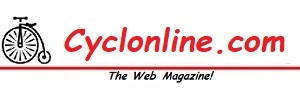
Which Ebike Motor Should I Buy in 2026? Guide and Comparison of Bosch, Shimano, Fazua, Yamaha, and Brose: Pros and Cons
Which Ebike Motor Should I Buy in 2026? Guide and Comparison of Bosch, Shimano, Fazua, Yamaha, and Brose: Pros and Cons
If you are considering buying an electric bicycle (ebike) and are leaning towards a mid-drive system (motor at the bottom bracket), the choice of the motor is crucial. With continuous technological evolution, leading brands like Bosch, Shimano, Fazua, Brose, and Yamaha offer different solutions, each with specific advantages and trade-offs.
This indexed article, based on expert analysis, aims to clarify the differences between the most popular mid-drive systems to help you find the "best" motor based on your specific needs.
The Context: Why Choose a Mid-Drive Motor?
A veteran reader, a lifelong cyclist with a limited budget, posed the fundamental question after testing both hub motors and mid-drive motors, preferring the latter. Mid-drive motors are generally favored for:
Natural Ride Feel: They transmit power directly to the drivetrain, working synergistically with the gear ratios.
Efficiency: They optimize battery usage by utilizing the bike's gearing.
Balance: They keep the center of gravity low and central, improving handling.
The answer to which motor is "best" depends entirely on the cyclist's use case, whether it's an extreme eMTB, a lightweight e-road bike, or a commuter.
Detailed Analysis of Popular Mid-Drive Motors
1. Bosch (Performance Line CX, Performance Line SX)
Bosch is widely considered the benchmark for the mass ebike market. The German company has set the direction of development for the sector, thanks to its broad adoption by many bicycle brands.
Bosch systems, including the powerful Performance Line CX and the lighter Performance Line SX, offer a smooth assist feel, along with adequate power and, more importantly, torque for the intended use. A key advantage is their proven reliability, having been around long enough to solidify their reputation. The main drawback that can be noted is that, in some of its configurations, it might not be the most compact system on the market.
Ideal for: Cyclists seeking reliability, adequate power, a smooth ride feel, and a system with broad adoption and dealer support.
2. Shimano (EP801 and Various Systems)
Shimano's various motor systems are known for being relatively light and compact and for offering a natural ride feel.
However, they have some drawbacks: they tend to be less powerful than some competing options and can be slightly noisier. This is particularly true for the latest eMTB drive unit, the EP801, whose freewheel mechanism can produce loud rattling and clunking noises. Like Bosch, Shimano motors enjoy wide market penetration and good support from the dealer network.
Ideal for: Cyclists seeking a compact, light system, a natural feel, and easy service through the Shimano network, accepting potentially higher noise levels.
3. Brose
Brose motors are known for being exceptionally quiet and providing a very natural assist feel. They have often been found, rebadged, on some Specialized bicycles.
A point of concern regards the future of their distribution: Brose sold its ebike business to Yamaha in 2025. This change could potentially alter their direct market availability.
Ideal for: Those seeking maximum quietness and a natural assist, while noting the recent ownership changes.
4. Yamaha
Yamaha motors have traditionally been less common than other systems (with notable exceptions like Giant and Haibike), but they have earned a reputation for being robust and reliable, offering a boost with a punchy and responsive feel.
Ideal for: Cyclists looking for a proven, reliable motor that offers a decisive and responsive boost.
5. Fazua
Fazua motors are in a category of their own: they are the lightest and most compact of the mid-drive systems. This design, however, involves a fundamental trade-off: they provide less assistance to pedaling compared to full-power motors. Their strength lies in the possibility of creating very discreet e-road or e-gravel bikes with a weight close to that of a traditional bicycle.
Ideal for: Cyclists who want an ebike that is as close as possible to a traditional bike in terms of weight and design, accepting reduced assistance.
The New Market Disruptors (2026 Update)
While historical brands maintain their position, 2026 sees the emergence of new players who are redefining power standards in the eMTB sector:
DJI Avinox (eMTB)
DJI, known for drones, introduced the Avinox motor, setting a new benchmark for high-performance eMTBs. The motor boasts impressive numbers: 1,000 W peak power and 120 Nm of maximum torque. Despite these extreme values, the assistance is delivered smoothly.
Ideal for: E-mountain bikers looking for the maximum power available on the market.
Mahle (Hub Motors)
Although this comparison focuses on mid-drives, for non-mountain bike uses (light e-road, e-gravel), Mahle hub motors deserve attention for their lightness and discreteness, especially for those on a tight budget looking for minimal assistance.
Conclusion and Buying Advice
The choice of motor is a compromise between weight, power, ride feel, and reliability/support.
For Reliability and Versatility: You can't go wrong choosing Bosch or Shimano. They are proven systems with a wide network of support and service.
For Maximum Power (eMTB): Evaluate new generation systems like DJI Avinox for their extreme performance.
For Lightness and Discretion (e-Road/Gravel): Fazua is the optimal choice if you are looking for lighter assistance but a significantly reduced overall weight.
Final Advice: The best way to decide is to test ride the bikes. Narrow down the field based on your priorities (e.g., if weight is more important than pure power, or vice versa) and book test rides to evaluate the ride feel, assistance, and motor noise in real-world conditions, as numbers alone do not tell the whole story.
